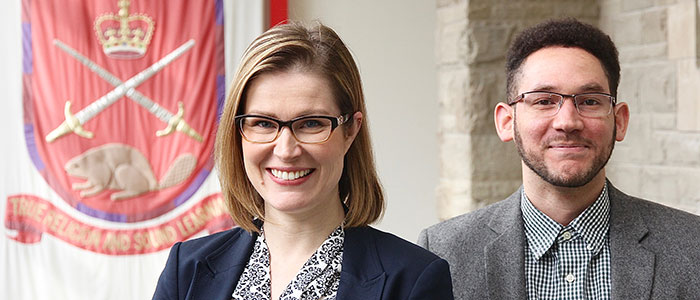News and Updates
Contact
Faculty of Social Science
Social Science Centre
Room 9438
Western University
T. 519-661-2053
F. 519-661-3868
E. social-science@uwo.ca
Study: Narcissism and desire to belong leading to deception on social media
March 02, 2017
Story by Paul Mayne, Western News
High levels of narcissism and a weaker sense of peer belonging is leading millions of young adults to take part in deceptive like-seeking avenues on Instagram, a recent Western study revealed.
The need for these adults (18-29) to desire attention and validation from others via ‘likes’ on the popular social networking site led Huron University College Psychology professor Tara Dumas to delve deeper into why they often try to increase their popularity through fraudulent or manipulative tactics.
The study, published in Computers in Human Behavior, showed a two-factor solution, with like-seeking behaviour separated by whether they were normative (common or accepted actions such as using filters or hashtags) or deceptive (deceitful actions such as buying likes or changing one’s appearance in photos using software).
Dumas said it was talking with her students that led her to this topic.
“I knew young people were using these sites a lot, and I knew they were all about the ‘selfie phenomenon,’ but I didn’t know, until interacting with my students, the extent some young people were taking in terms of purchasing followers,” said Dumas, noting the extent of users’ attention seeking surprised her.
One student said her friend never uploads a picture onto a social networking site without first giving herself a ‘digital nose job.’
“That term really struck me,” she added. “We had an idea young people were doing a variety of like-seeking behaviours and, I believe, to some extent that young people were buying likes and modifying their physical appearance, but we were surprised at the percentage of young people who were saying, ‘Ya, we do these things.’”
Dumas found approximately 15 per cent of the study’s participants were buying likes from websites – from 100 likes for $2.95 to 10,000 likes for $69.99 – and more than 25 per cent admitted to modifying their physical appearance in a photo before posting.
Matthew Maxwell-Smith, visiting professor in the Department of Management and Organizational Studies, and co-author of the study, said when you extrapolate these numbers and look at all the emerging adults on Instagram, you’re talking close to 25 million people who are being deceptive in order to maintain an image or popularity on the site.
“This seems to be more deceptive, and voluntarily intending to present a false image, than just finding a good image of yourself,” said Maxwell-Smith.
We need to look into the implications of this in regards to the self-esteem and self-competency of young adults, he added.
“One thing that seems to be a pretty good takeaway is people who score pretty strong on peer belonging are less likely to engage in deceptive like seeking. The reason they are doing it (on Instagram) is they are trying to document their lives to others and trying to share,” he added. “So it’s not necessarily the case if you’re on Instagram, and you’re uploading a photo, it means you’re a narcissist. It could also mean you feel you belong within your peer group and you just want to share. There are probably positive and social benefits to using Instagram.”
Dumas said while normative users can also be labelled narcissistic in a sense, their levels of deception are more typically things such as using hashtags, posting an older photo of themselves or using a photo filter to make the image look better.
The deceptive people who are more narcissistic – taking a lot of selfies, on social media quite often – felt low peer belonging and less connected to, and valued by, their peers, which is concerning, she said.
“What happens when you put up a picture that’s essentially not really you, or you bought those likes, are you still making yourself feel better? The reason why narcissists do these things is to appear more cool and creative, but why are they doing this? Is it about developing their identity?”
Dumas and Maxwell-Smith hope to conduct similar studies to test Instagram users over time and whether or not they are increasing their deceptive activity and, if so, how it changes how they are feeling about themselves. Another aspect may be to look at how competition within peer groups might spur people to engage in these sort of deceptive activities.

